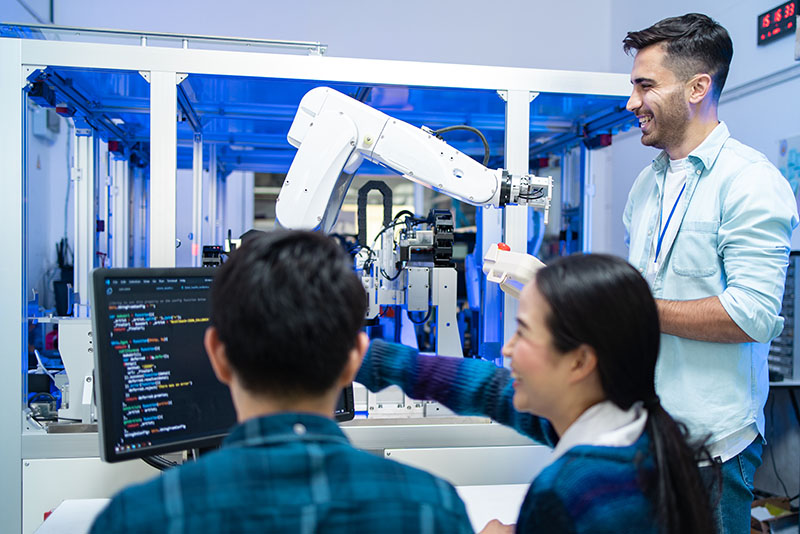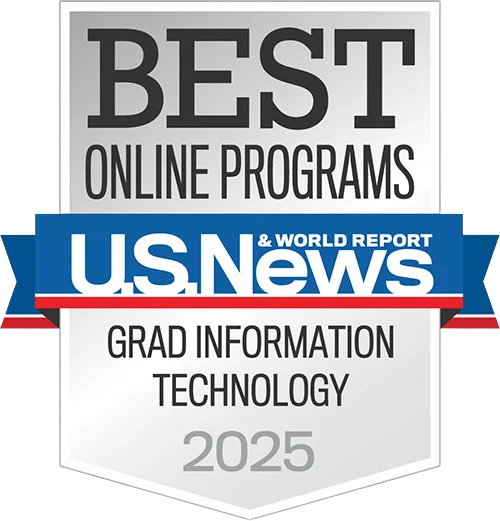Certificate in Applied Machine Learning
Start anytime. Work at your own pace.
Need an excerpt

Curriculum designed and delivered by APL’s Dr. Ehran Guven
LIVE monthly seminars and office hours
Engaging learning including video walkthroughs and hands-on activities
Satisfaction guaranteed. Explore the course with no risk.
Save $300 with the Certificate vs. buying courses separately
Are you overwhelmed by data and can’t squeeze any REAL insight out of Excel, R, or SPSS? Maybe you tried borrowing code from GitHub or running a few models in Colab, but it didn’t take you far enough.
Or you want to launch your ML/AI career path but don’t want to get stuck in the weeds with tedious theory instead of APPLIED lessons and results?
You’re in the right place. When you finish Dr. Erhan Guven’s Certificate in Applied Machine Learning, you’ll be able to build powerful systems that detect patterns in complex data that humans miss, recognize images, and understand audio. You’ll have the skills to solve real world problems in business intelligence, research, healthcare, and software development using the same cutting-edge deep learning techniques used by tech leaders worldwide.
In three project-based courses, Dr. Guven, AI scientist at the Johns Hopkins Applied Physics Laboratory, and Hopkins Engineering master’s faculty, guides you through the full machine learning workflow: how to clean and prepare messy data, engineer features that matter, train and evaluate models, and use ensemble learning, unsupervised learning, and deep learning neural networks to solve real problems.
Dr. Guven’s critical ML projects in his daily Applied Physics Lab work and experience teaching hundreds of students in Hopkins Engineering’s online master’s programs make him the perfect guide for an APPLIED machine learning course that teaches you to drive real-world results.
The Certificate combines Dr. Guven’s 3 sequential ML courses:
Into one bundle, saving you $300 off the cost of buying each course separately.
Through Jupyter notebooks with working code examples, video walkthroughs, quizzes, and hands-on projects, you’ll build models that don’t just “run,” but make meaningful predictions, reveal patterns, and generalize to new data. You’ll work directly with tools like Python, scikit-learn, pandas, and PyTorch.
After completing the course content, you can earn you Certificate by successfully completing and submitting a capstone project—proving to colleagues and employers that you’re ready to take the lead in complex machine learning projects that drive insights and ROI.

The capstone requires applying all skills from the 3-course certificate into a single deliverable that demonstrates knowledge of state-of-the-art ML and includes sufficient performance metrics. The project will be reviewed by Dr. Guven, who will provide feedback, which can be discussed further during live office hours.
The image is for illustrative purposes only. Actual certificate design subject to change,
Whether you’re hoping to turn messy spreadsheets into something smarter, or launch (or advance) a career working with data, this certificate will put the full machine learning toolkit in your hands and help you uncover answers and insights that were once unknowable.
No Risk: Satisfaction Guaranteed
Feel confident in your learning journey! If the certificate content is too advanced, not advanced enough, or simply doesn’t meet your expectations, we’ve got you covered with our money-back guarantee. Just contact our team within 7 days from purchase to receive a full refund—no questions asked.
Meet Your Instructor
Dr. Erhan Guven
Johns Hopkins University, Johns Hopkins Applied Physics Laboratory

Dr. Guven is an AI scientist at Johns Hopkins University Applied Physics Laboratory and assistant program manager in Johns Hopkins Engineering’s #1 ranked online master’s programs in AI and data science. His research spans a broad spectrum of machine learning applications, including large language models, financial systems cybersecurity, NLP, and bioinformatics. He earned his PhD in computer science from George Washington University. In his spare time, he enjoys gardening, beekeeping, building computers, and playing Defense of the Ancients.
Dr. Guven is Here to Help!
Questions about course content? Looking compare model results or get feedback? Stop by monthly Zoom office hours to talk with Erhan and fellow students.
Prerequisites
This course assumes experience with supervised machine learning and a solid understanding of concepts like model training, evaluation, overfitting, and feature selection. Familiarity with vectorized operations, basic linear algebra, and the logic of matrix-based computation will be helpful, especially as you implement neural networks from scratch and begin working with frameworks like PyTorch. You don’t need prior deep learning experience—but you should be comfortable coding, experimenting, and troubleshooting in a notebook environment.
Course Summaries
Jump into building working (if basic, for now) classification systems while Dr. Guven ensures you have the essential knowledge of data preparation and feature engineering—the TRUE KEYS to machine learning success.
You understand the machine learning workflow while challenging you to implement key components yourself. You’ll develop practical coding skills as you progress from data preparation through model training to evaluation and refinement.
With scikit-learn, pandas, and real-world datasets you’ll implement your first Support Vector Machines, Naive Bayes classifiers and text categorizing systems. Then you’ll make them more accurate and more predictive.
By the conclusion of Course 1, you’ll be able to implement the complete machine learning workflow and have an excellent foundation to build upon.
Course 2 introduces the powerful strategies that take your machine learning skills from functional to truly effective: ensemble learning, advanced regression, unsupervised pattern discovery, and reinforcement learning. You’ll explore how to make models not just better, but more robust, interpretable, and adaptable—the kinds of models that perform in real-world conditions, not just clean lab settings.
Most machine learning models don’t fail because they’re wrong—they fail because they’re fragile, opaque, or built on shaky assumptions. You’ll build models that last: ones that generalize better, reveal what they’re thinking, and can adapt to changing inputs. You’ll learn how to work smarter with the models you train—and how to choose the right approach when the data doesn’t follow the rules.
With scikit-learn, pandas, NumPy, and supporting tools like Graphviz and scipy, you’ll experiment with feature selection, dimensionality reduction, and model interpretability to make your systems smarter, faster, and more resilient.
By the end of the course, you’ll be equipped to tackle complex, high-dimensional problems with confidence—and ready to apply machine learning in environments where accuracy, scale, and adaptability matter most.
This is where we pivot from classic machine learning to deep learning: the approach behind today’s most powerful AI systems. It’s how machines learn to see, hear, and understand the world. Models that find their own way.
You’ll start by building neural networks from scratch to understand how they learn, step by step, through backpropagation. Then, using PyTorch, you’ll construct deeper architectures that learn directly from raw data: convolutional networks that can classify images and spectral models that can detect patterns in audio. You’ll also confront the real challenges that come with depth: overfitting, vanishing gradients, and high computational cost—and learn how to address them with dropout, batch normalization, and GPU-based training.
Deep learning changes the way models learn and what they can handle. Instead of relying on manual preprocessing or feature engineering, you’ll train systems that extract structure on their own—even from noisy, complex, or high-dimensional data. And by the end of the course, you’ll be able to recognize when deep learning is the right tool—and how to use it effectively.
Tab 4 content.
Powered by Engineering for Professionals
The #1 Ranked Online Grad Program for Computer Information Technology by U.S. News & World Report

Johns Hopkins Engineering’s Lifelong Learning delivers executive education courses from the same faculty and support team behind Johns Hopkins Engineering for Professionals, the nation’s #1 online, part-time graduate program in computer information technology. This ranking includes our master’s programs in computer science, artificial intelligence, cybersecurity, information systems engineering, and data science.
Course Delivery and Support
The courses are delivered entirely online through the industry-leading Canvas Learning Management System. This system is supported by the same instructional design team behind Johns Hopkins’ renowned Engineering for Professionals program, which serves thousands of online graduate students each year. Upon registration, you will receive an email with instructions to create your Hopkins Canvas account and access the videos, readings, files and quizzes.
Certificate in Applied Machine Learning
Artificial Intelligence
Online Self-Paced
60 hours
6 CEUs
$1500
$1200
No Risk: Explore the Certificate for 7 Days